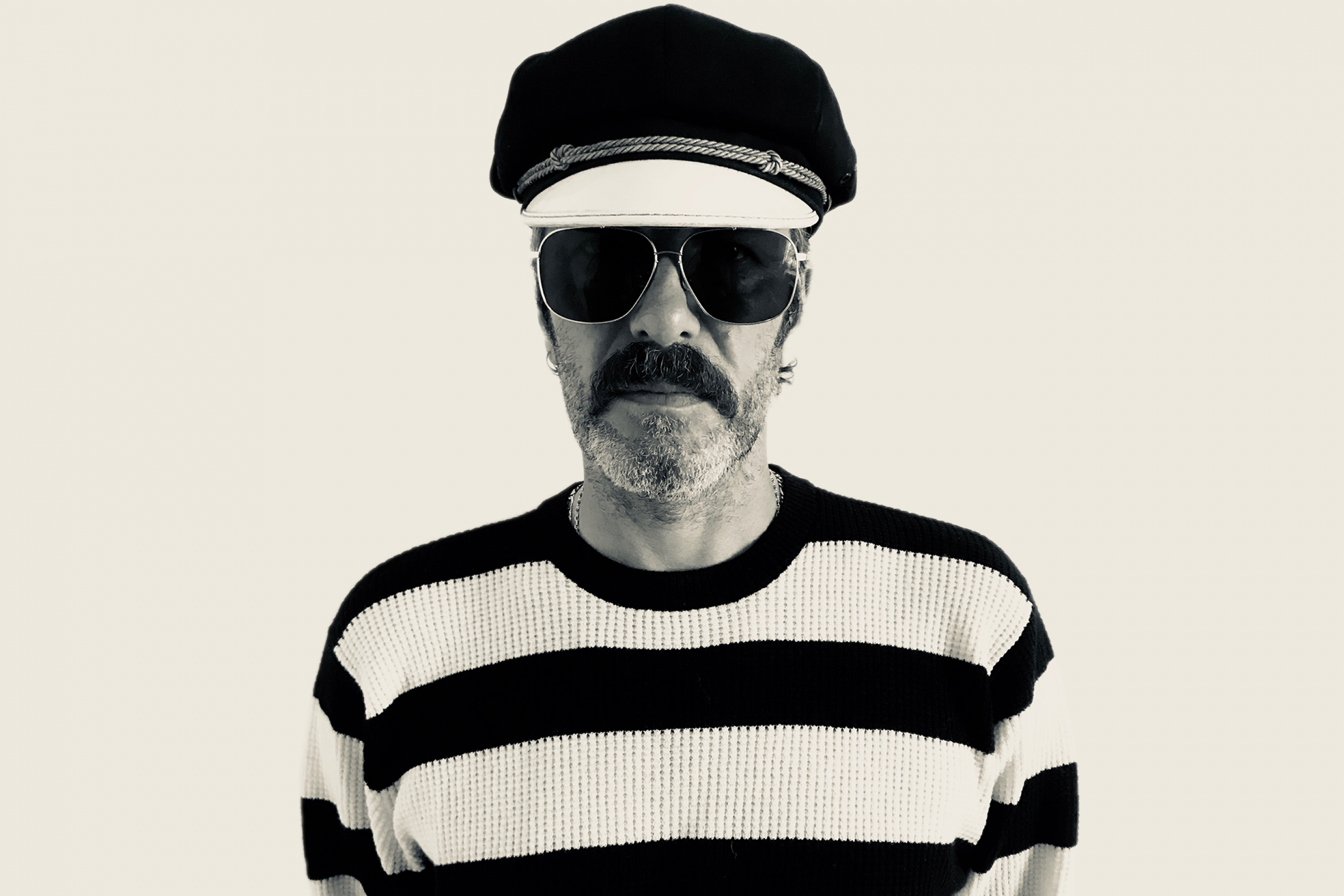 Features
Features
DJ Harvey: "I’m most definitely not a disco DJ... I'm just a DJ"
After celebrating five years of Mercury Rising in Ibiza, we sit down for an intimate chat with the legendary DJ
On an island saturated with dance music and nightclubs, there's arguably no party keeping the true spirit of Ibiza alive quite like DJ Harvey's Mercury Rising. Held at Pikes Ibiza’s iconic Freddie’s Room, the party series showcases a variety of styles, predominantly the emotive and euphoric Balearic sounds that helped establish Ibiza as a hedonistic haven during its formative years. Yet with Harvey at the controls for his 6-hour sets, there's a unique touch that allows the material to feel as fresh as ever. Now five years since its inception, Mercury Rising is regarded as a quintessential session delivering the essence of feel-good dance music in Ibiza.
DJ Harvey's history with the White Isle traces back decades, which makes him one of the most reliable artists within the community. He's seen the culture shift and evolve over the years, but he says one thing has remained constant, "it’s been party-central for a couple thousand years, and it still is."
With so much buzz surrounding his nights, we sat down for an intimate chat with DJ Harvey to uncover what's fueling his passion at Mercury Rising. Here we also get his thoughts on disco’s place in today’s dance music industry, how he feels about punters chasing after his secret DJ weapons and try to get him to share some hedonistic memories from his time with Tony Pike.
Read this next: The Cult of DJ Harvey
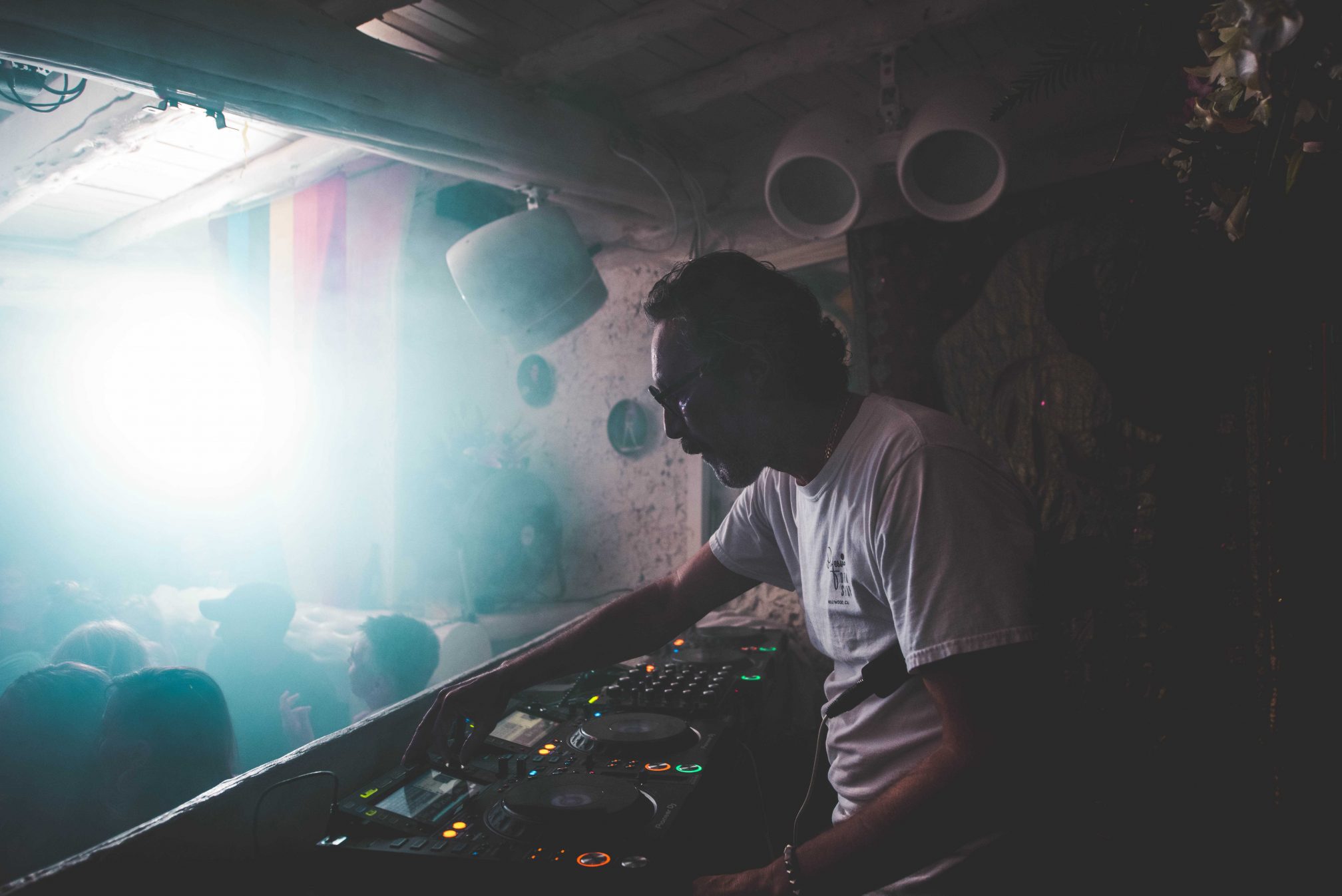
Mixmag: How does it feel to be celebrating 5 years of the Mercury Rising party?
Harvey: Feels absolutely great! I’ve just finished my season for this year, and it was a huge success. It ran like clockwork with no major stop signs, everyone’s happy, worked out great, and we’re feeling positively super.
M: Were there any obstacles that you had to overcome to establish your vision of Mercury Rising?
H: There’s been some minor issues, mostly technical stuff - getting the system right, the lighting right, stuff like that... We also remodeled our space at Pikes, which was actually Freddy Mercury’s private suite back in the day. So we partially remodeled that space, it was quite a small, intimate venue already, but we knocked a wall down and flattened out the floor to make a little room. But that was a couple years ago.
This year, like I say, literally ran like clockwork. The team and everything was already in place and we got to just show up and play some records. It worked out really, really well.
M: Can you describe some of your earliest memories at Pikes?
H: I’ve been going to Ibiza for pretty much 30 years now. I visited Pikes possibly on my first visit around 1990, but I was unaware of a lot of the history of the place at the time. Everyone knew it was the venue for Wham’s ‘Club Tropicana’ video, and Wham being a really iconic British pop group. Everyone in England knew who Wham was, so it was always very nice to sit in the same place as George and Andrew with a cocktail.
But you could feel it was a special place even then. So I regularly visited over the years, popping in for a drink or a party here and there up until the modern age, when Dawn Hindle and Andy McKay became the caretakers of Pikes during Tony Pike’s last few years on the planet. They invited me to come in and do my thing there.
Read this next: 10 iconic DJ Harvey moments
M: What was your relationship with Tony Pike like?
H: Really great, actually. It took him quite a few years to remember my name, but especially in the last five years with me being there on a regular basis for weeks at a time, we’d often have breakfast together and “talk story,” as it were. He was a pharaoh amongst men, in the party zone. Few people have lived a life as hedonistic as Tony Pike, I believe.
His life held more adversity than mine, so I wouldn’t really want to have been in his shoes. But he was definitely inspirational as a very graceful gentleman… definitely a lover, not a fighter. How he presented such an honorable and gentlemanly way to behave, even when you’re completely shitfaced, as it were - *laughs*.
M: Can you share any hedonistic memories from those days?
H: Most of them, I can’t share with you. Other than saying there was some very “grown-up fun” being had. That’s about it, really. (*laughs are shared*)
There’s a lot you couldn’t publish. Having just finished the season until the next one, all I can say is that if there’s a year to go, come and experience it for yourself. It can be quite tough on the organs. Put it that way. Go on some sort of Navy Seal boot camp training for the next 9 months, and you might be in good enough condition to live alongside me for a season in Ibiza.
Read this next: "I don't want it to end": Tony Pike's hedonistic lifestyle made him an Ibiza legend
M: So what’s the key to longevity for you?
H: Sleep. Plenty of sleep. Sleep and water. You’ll live forever. And smile! Smile at least once a day, and tell jokes. You know?
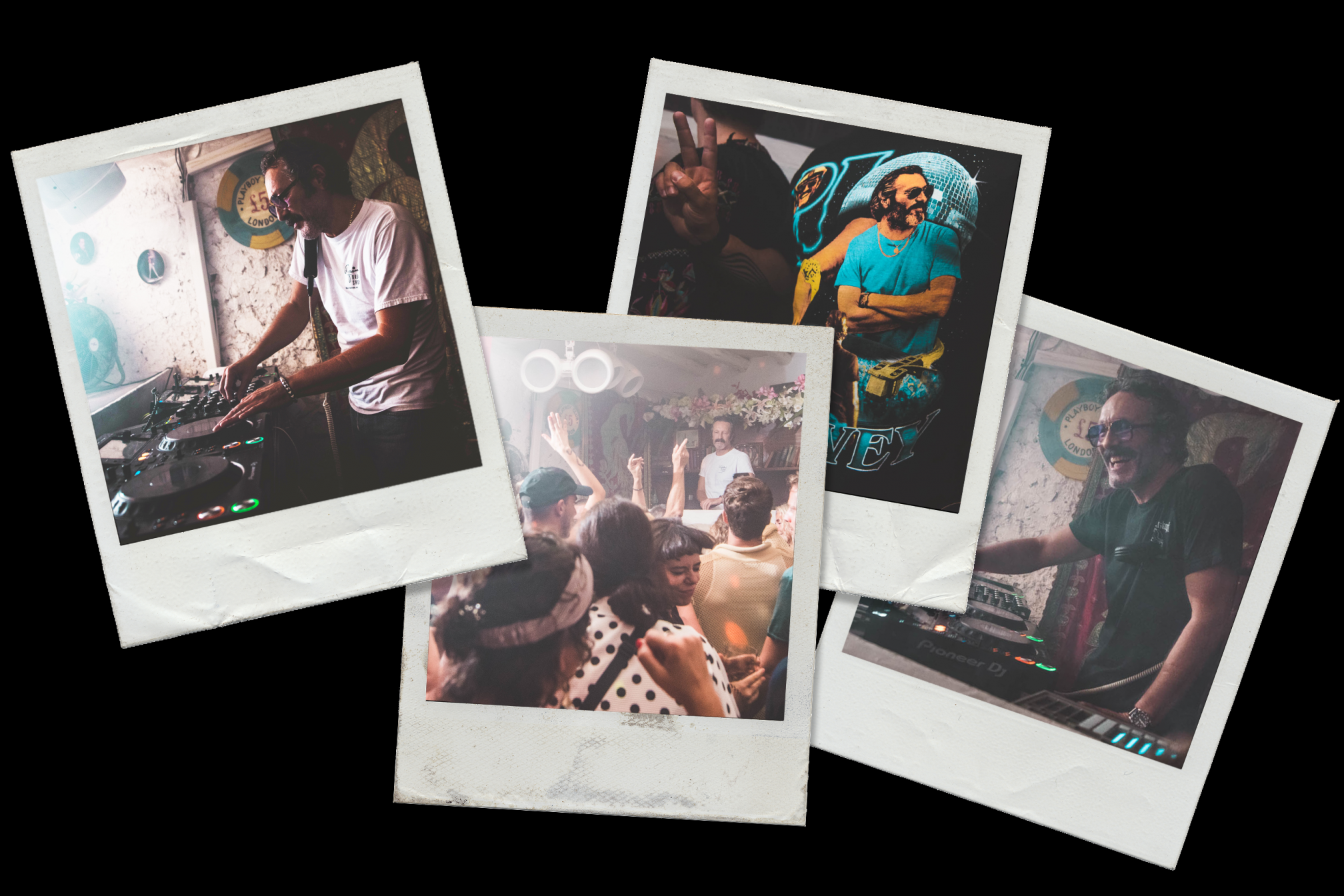
M: Can you describe your perspective about what has changed the most on the island?
H: That’s really difficult to say… because one of the things, the “Ibiza Syndromes” is what I call them, is the “Not Like It Used to Be Syndrome.” When I arrived 30 years ago, I was told it was not like it used to be. Then I did a bit of research, and found out there were people saying it’s not like it used to be during the 1950s! But after spending the past three decades on the island, I realized that nothing really changes there at all! It’s been party-central for a couple thousand years, and it still is.
That said, a couple of the changes I’ve seen in recent years, is that it’s become a rather expensive place to holiday. I think what’s happening, especially in the last ten years, is that for the price of three days in Ibiza, you can probably do ten days in Croatia. So a lot of the younger people with not such a high budget are not going anymore.
There’s been a movement towards… I don’t know if you’d call it “hipsterism,” because a lot of the people are not particularly stylish, but sort of a new-vogueish style of movement where it’s just become more and more expensive to spend time in Ibiza. That’s probably been the main change. Other than that, it’s pretty similar to what it always has been.
M: Has the crowd at the Mercury Rising parties evolved, changed, or shifted since the beginning?
H: Not really… I would say 90% of the people that come to see me play have some idea of who I am and what I do. That determines the shape and style of the crowd, if you like. It’s actually a very mixed crowd, from 21-year-old kids to 81-year-olds, of all colors, shapes, sizes and denominations. But I think one thing that maybe does link them all together is that they tend to be rather nice, professional party people, you know.
“I’m proud of my crowd,” as they say.

M: What kind of atmosphere are you trying to curate at these Ibiza parties?
H: Just an honest-to-goodness good time, really. I’d like to think that you could walk up to anybody in the crowd and start a conversation or introduce yourself, make a new friend. It’s a serious good time, that’s what it’s all about.
One of the sorts of things that really defines, for me, what I call the “acid house movement,” is that before that acid house “philosophy,” if you like, I might go to a party in London or something, and I’d actually be afraid. I’d be afraid for my well-being. I could have my clothes taken, or my shoes taken, my jacket or my hat taken… actually mugged in the party by gangs from different areas. If i was to step on somebody’s foot, I’d have to deeply apologize and maybe buy them a drink, or something like that.
Whereas, if you step on somebody’s foot at Pikes during my night, they will apologize for putting their foot in the way of yours before it cuts a ground, and buy you a drink, and give you their tee-shirt. That’s really the difference, I think.
We celebrate life, we dance together, and we rub up against each other, you know... It’s a small venue, so everyone’s really squished in, particularly if it’s a busy night. So yea, if you don’t get along with the human race, my party isn’t the place to be.
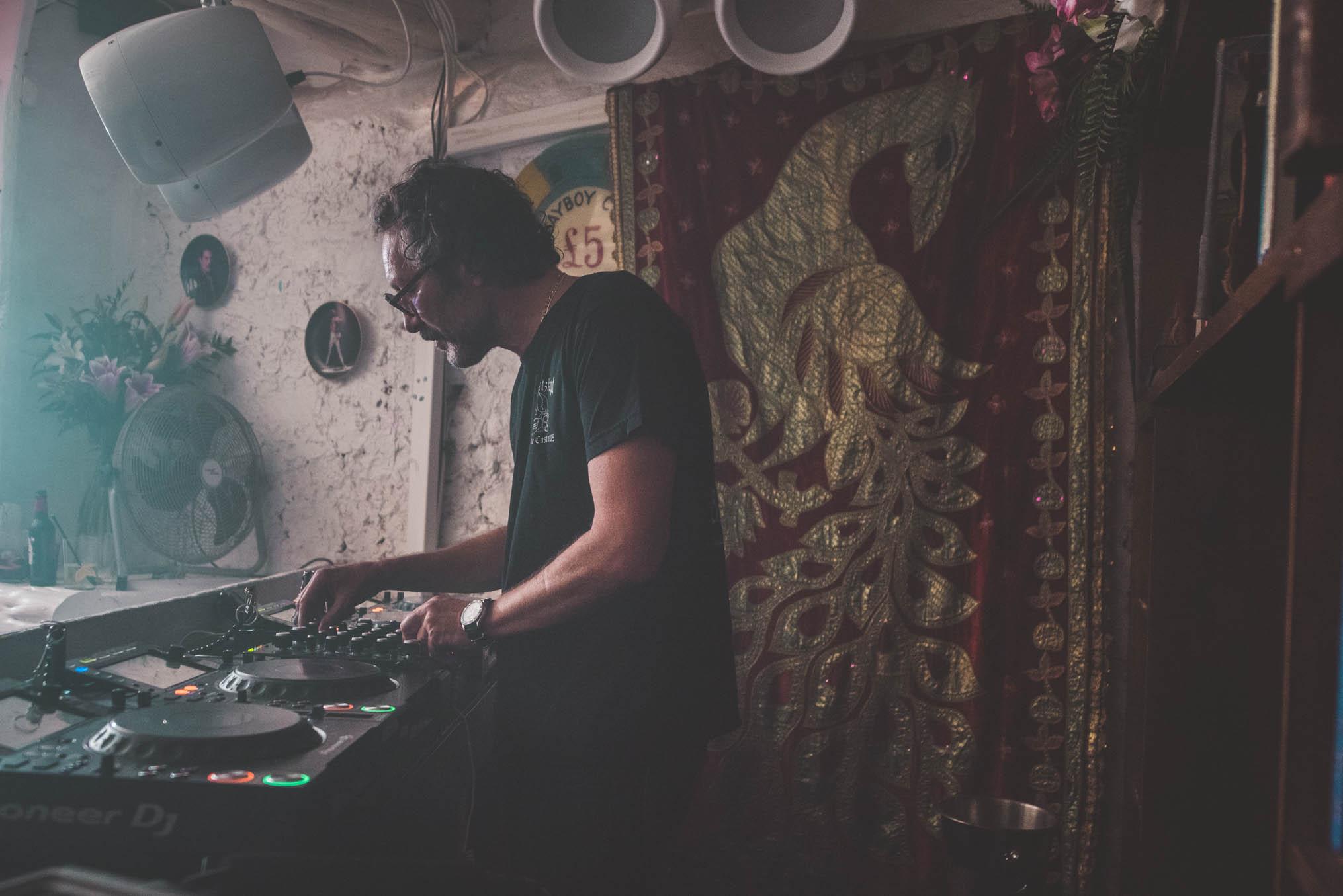
M: So going back in time again, from the days at Gardening Club, Ministry of Sound, and now Pikes, how has your approach or sound shifted?
H: My approach has never really changed. I consider myself an entertainer and professional DJ, and I aspire to make the majority of people in front of me as happy as possible. To get their money’s worth and enjoy themselves. That philosophy applies to whenever and wherever I’m playing. Whether it’s Pikes, with a couple hundred people, or at Ministry, which will hold 2,000 people.
In fact, I played at the Blue Marlin in Ibiza just a few weeks ago, and a lad I’ve always loved, Seb Sebastien, asked as I stepped up to the booth, “So what are you going to play tonight?” and I looked at the crowd and said, “I’m going to play whatever they want.” You know?
Some people are quite shocked, because I might have this reputation for being this sort of single-minded heretic, doing my own thing, musically that is, for the crowd. But actually, I consider myself a bit of a sushi chef, if you like, for music. I’ll present one piece of music, and the way the crowd reacts to that then determines what the next piece of music will be.
I don’t have a “set” or whatever it is. And the music does change from venue to venue. A fun set in Ibiza is going to be a quite different type of music, to doing, you know, the big downstairs space in Berghain. So I’ll consider that, and play the right music for the right situation.
M: Considering there’s so much going on, especially in Ibiza, with so many different styles and sounds, what is your perspective on disco’s place in today’s dance music industry?
H: Basically, I feel that categories only really help out journalists describe the way someone is playing, or their persuasion towards music. I feel that disco is probably one of the root genres for modern electronic music, in addition to Kraftwerk or whatever it may be. It’s common for house music to be considered “Disco’s Revenge.”
As most of it is over 40-years-old, now, when I was a young man in the 70’s, I wasn’t really listening to music from four decades earlier. That would have been folk music, or something like that, which wouldn’t have transitioned into the 70’s for exciting dance music. Whereas, it’s interesting how disco from the 70s feels completely relevant in the modern day.
I’m most definitely not a disco DJ. I’m not a techno DJ. I’m not a house music DJ. I’m just a DJ, and predominantly a dance music DJ.
I feel, with all these categories, it all goes *bang-bang-bang* - *bleep-bleep-bleep*. The lot of it, whether its techno, disco… I’m not retained by categories, and anyone that’s really listened to me play will hear that. I’m just as likely to put a disco record, next to a techno record, next to a house record… whatever it may be. I just play the right music for the right situation.
From time to time, though, there might be particular gigs, say something like Horse Meat Disco, where I will play predominantly disco. But I’m not one of those, “not like it used to be” retro DJs. I play just as much brand new music as I do old music. And I’m actually quite happy that disco isn’t a dirty word, and that young people are interested to hear some of the root music to their dance music culture.

M: Let’s move on to the Mercury Rising Compilation. There’s a lot of really interesting music included… What encompasses this new compilation, and why did you choose these tracks?
H: It’s quite difficult, really. It’s only just over an hour, whereas my sets at Pikes are a minimum of 6-hours long. The CD itself is only a tiny facet of the music that’s played during a season. There’s a few… what’s the word, because it’s not “categories.” Most people listen to music, on the go or in the car. So in selecting the tunes, I wanted it to be a listenable program of music. And also, you can see and hear, there are tracks that are 40-years-old and music that is four months old on there.
It had to stand up on its own, but also had to purvey a certain amount of the flavor of the music that’s played at the Mercury Rising party. There were also some licensing limitations. Some people didn’t want their music on there, for whatever reason. Some people were charging too much, or I couldn’t contact the artist. Then there were some relatively new tracks produced by people I know and adore, who represent the modern phases of dance music. There are many reasons why those tracks are on there.
But I just wanted to put something together that works on its own, independently. So if you’ve never been to the party in Ibiza, you can buy the CD and enjoy those tracks as they are. But also if you have been to Mercury Rising, you could buy that and be reminiscent of certain aspects of the music.
M: You’re known for DJ Harvey’s “secret weapons” - bringing out some rare grooves to burn down the dance floor... Do you have any sneaky tracks that you’re loving at the moment?
H: Yes, and I won’t tell you what they are.
What happens is, I feel like I’m floating the Shazam boat. You know? I’ll put on a record, all of a sudden the room becomes bathed in this blue light, as everyone Shazam’s the track. And then I see a bunch of disappointed faces when I turn down the volume, as if to say, “Hah hah, you should have been dancing to it. Why don’t you just come and ask me?”
There are entire industries that revolve around the music that I play. People don’t really buy music so much these days. Back in the day, musicians would give gigs to promote their record sales. Many musicians used to give away their music to promote their live events. Maybe 30 years ago, I wanted everyone to know the names of all the tracks I played because I’m promoting the sales of those records. Now, I’m protecting the names of those records, because people will have to come and see me to hear them.
That’s a bit of a shift in the industry, and like I say, there’s some rather unscrupulous... assholes, for lack of a better word, who make a living through this so-called reissue type industry. They’ve been devalued, when the mastering isn’t as good… and I have to admit, I have dabbled in some of that in the past, but sometimes it leaves a bit of an aftertaste when something is devalued.
Some music shouldn’t be everywhere, but it’s a double-edged sword. Obviously I want people to come and hear me. You can go into record shops in Japan, and there’s two bins. One of them will be, “These are all of the records that Harvey played last week” and the other one will be, “Here’s all of the records he’s going to play next week!” And I don’t even know that! It’s an interesting part of the whole zone. They call it reissues, I call it bootlegs. When things have been unofficially reissued from the original master tapes.
But it’s not all bad. Some tend to be pretty good. I like nothing better than finding a reissue that sounds better than the original - which is rare, but can be a pretty nice treat.
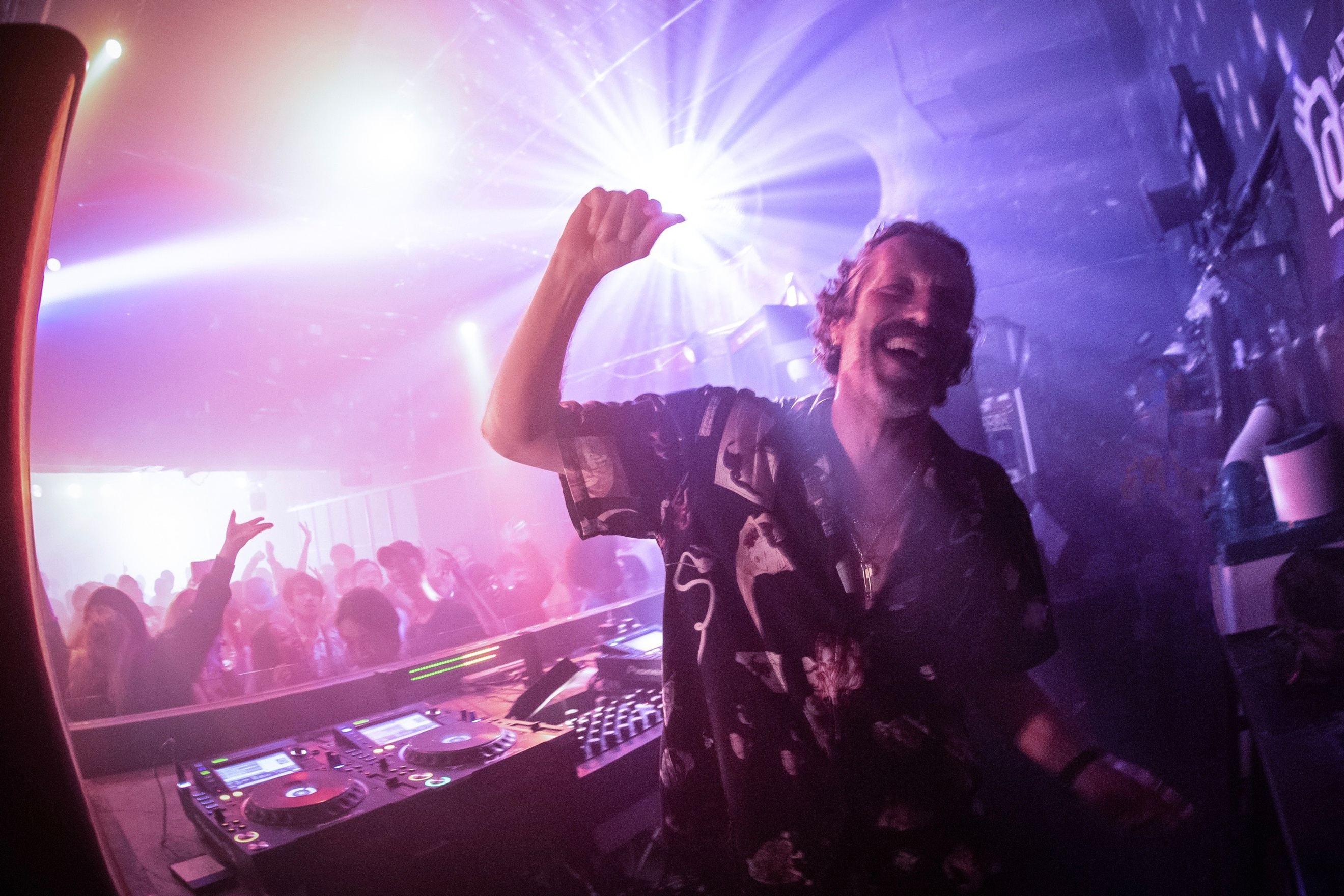
M: So is there anything you’d want to say directly to the Shazamers of the world?
H: I don’t mind if people want to know what the music is. I think it’s great. Music is for sharing, and it’s good.
But I think it’s a shame that people stop dancing for Shazam. You’re not supposed to be Shazaming. You’re supposed to be dancing, and I would encourage people to ask me when the record is finished. Come up to the booth, you know. Probably only a third of the time, especially with newer music, will Shazam even react to it.
It’s an interesting one, because I’ve had people come up to me and say, “Wow mate, I have all the music that you’ve played. But it doesn’t sound the same when I play it.” And to that I have to say, that’s where the art comes in. You don’t play ‘Get Down Friday Night’ on Saturday night. You know? You don’t play ‘Touch Me in the Morning’ in the afternoon. That’s why the music doesn’t sound the same.
That’s one thing that I can hold, and something I’ve learned, is how to play the music. Just the ownership of the music doesn’t do it - like, “Ok, I’ve got a Ferrari…” but if you can’t drive it, mate, that doesn’t make any difference.
DJ Harvey's 'The Sound Of Mercury Rising Vol II' compilation is out now, get it here
Catch DJ Harvey at All My Friends Festival on Sunday, October 20 in Los Angeles.
Harrison is Mixmag's US Editor. Follow him on Twitter here
Read this next: Get the best of Mixmag direct to your Facebook DMs


